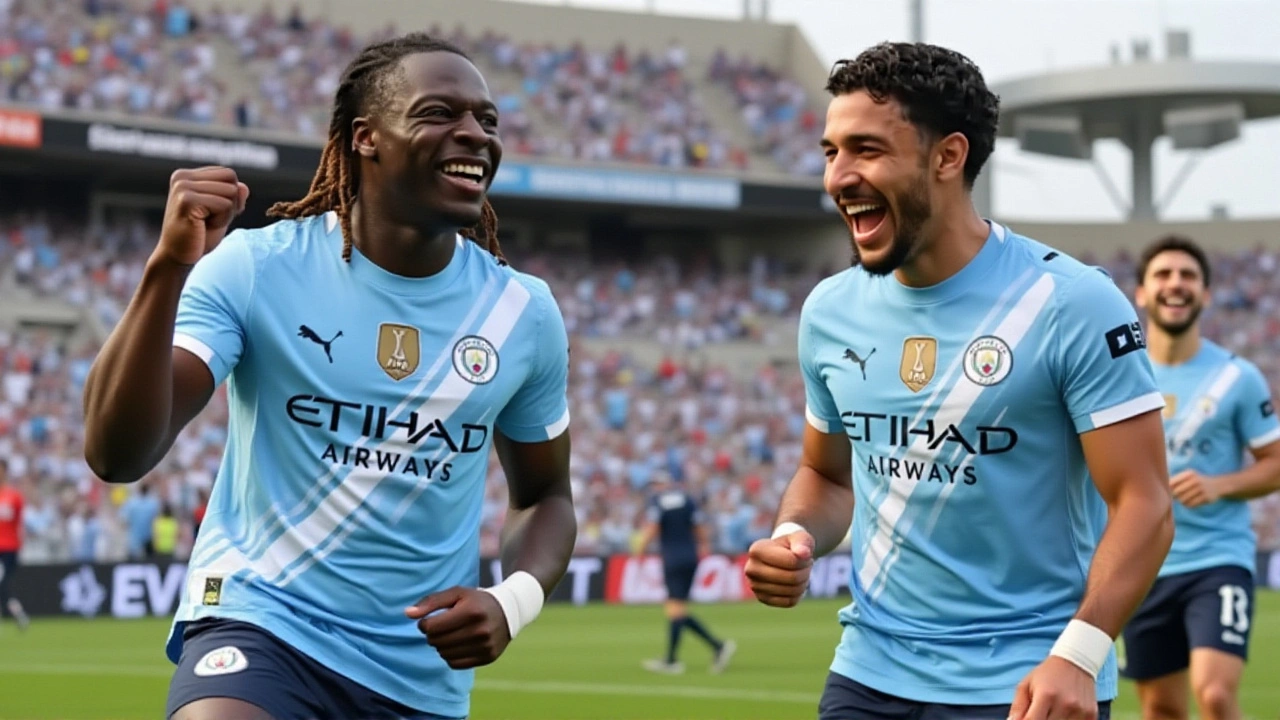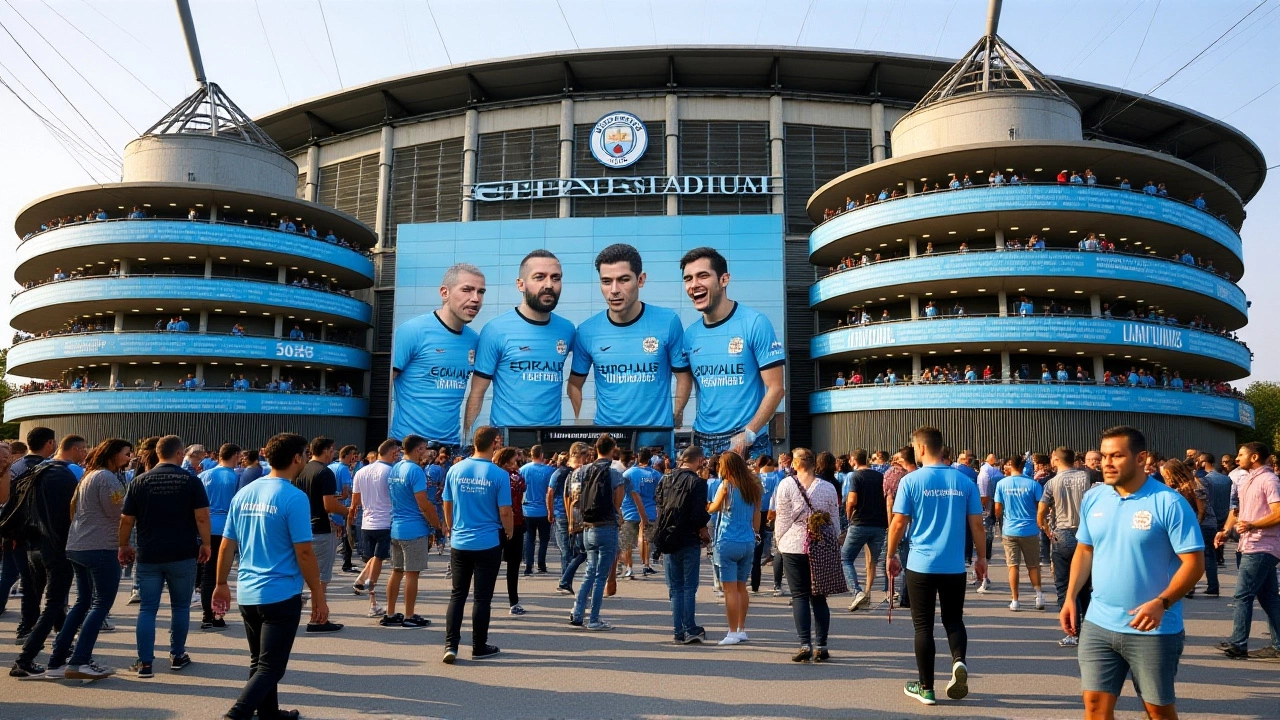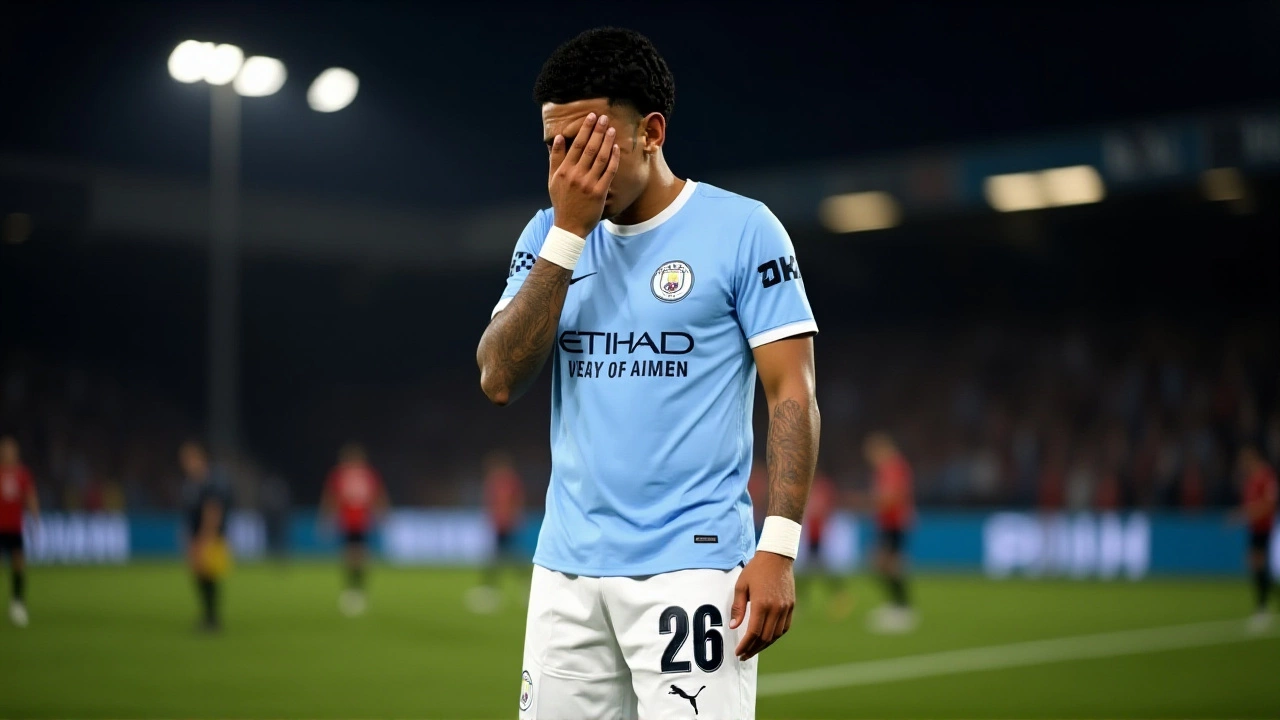It wasn’t just a loss. It was a collapse. On Wednesday, November 26, 2025, Manchester City Football Club surrendered a 14-match home unbeaten run in the UEFA Champions LeagueEtihad Stadium with a shocking 0-2 defeat to Bayer 04 Leverkusen. The goals came from Victor Boniface in the 23rd minute and Jonathan Tah in the 89th — but the real story was written in the numbers. Five Manchester City players were rated a catastrophic 4 out of 10 by Whoscored.com, the London-based analytics firm. Five. In a team that’s spent the last decade rewriting the rules of modern football. This wasn’t bad luck. This was systemic.
When the Machine Broke Down
Manchester City dominated the stats on paper: 55% possession, 19 shots, 90% pass accuracy. They completed 17 successful dribbles. Yet they didn’t score. Not once. Meanwhile, Leverkusen — a team valued at less than half of City’s €1.12 billion — managed just seven shots and 45% possession. But they scored twice. And they did it with surgical precision. The disconnect was staggering. Kyle Walker, 34, looked slow, out of position. John Stones, 30, missed tackles he usually makes in his sleep. Ruben Dias, 27, was caught out of position twice. Rodri, 28, failed to control the tempo. And Bernardo Silva, 30, vanished in the final third. All rated 4/10. That’s not just poor. That’s historic. In the Premier League this season, the average player rating is 6.82. A 4 is the equivalent of a student failing a test they studied for.Guardiola’s Fateful Substitution
The turning point came in the 62nd minute. Pep Guardiola, the Catalan tactician who’s won 28 major trophies since arriving in 2016, took off Julián Álvarez — the Argentine forward who’d been City’s only consistent outlet — and brought on Erling Haaland. The logic? More physical presence. More aerial threat. The reality? Zero creativity. Zero movement. Haaland was isolated. The midfield stopped flowing. And in the 89th minute, Leverkusen broke with terrifying speed. A long ball. A run. A finish. The goal was the direct result of a midfield void left by Álvarez’s exit. BBC Sport’s Mark Lawrenson, a former Liverpool defender, put it bluntly on air: “Guardiola’s decision to withdraw Álvarez removed our only creative outlet in the final third—those five 4/10 ratings reflect systemic tactical failure, not individual errors.”The Ripple Effect
The fallout wasn’t confined to the pitch. Within 30 minutes of the final whistle, Manchester City Football Club’s stock price on the London Stock Exchange (ticker: MCFC) plunged 3.2% to £28.45 per share. Analysts at Barclays estimated a potential €15 million loss in UEFA prize money, sponsorship triggers, and global broadcasting rights. The club’s financial structure, built on Champions League success, now faces its biggest threat since 2018. Even more telling: this was City’s lowest-scoring home Champions League performance since their 0-1 loss to Paris Saint-Germain in November 2021. And it came against a team they’d beaten in all three previous meetings since 2012.
Leverkusen’s Masterclass
Meanwhile, Bayer 04 Leverkusen, under Spanish manager Xabi Alonso, executed a near-perfect counter-pressing system. Alonso, who took over in October 2022, turned his team into a model of discipline. They didn’t need to dominate. They needed to exploit. And they did. Their 86% pass accuracy was flawless under pressure. Their defensive shape held firm. Their transitions were lethal. Even their market value — €645 million — was dwarfed by City’s, yet their performance was superior. This wasn’t an upset. It was a statement. Leverkusen aren’t just a team. They’re a blueprint.What Comes Next?
The pressure on Guardiola is now undeniable. Sky Sports’ Kaveh Solhekol reported multiple sources within City’s board believe the manager’s rotation policy — once praised for managing squad depth — is now a liability. With the Premier League clash against Arsenal Football Club at the Emirates Stadium looming on December 3, 2025, the clock is ticking. Fans are calling for changes. Former players are speaking out. Even the club’s CEO, Ferran Soriano, has reportedly held emergency meetings. If City lose to Arsenal, the narrative shifts from tactical debate to managerial crisis.And here’s the twist: City’s midfield, once the envy of Europe, now looks brittle. Walker’s pace is fading. Stones is vulnerable on the ball. Dias is no longer the rock he was. Rodri, the engine, is carrying too much. Silva, once electric, is now a shadow. This isn’t about age. It’s about adaptation. Guardiola’s system demands constant movement, spatial awareness, and relentless intensity. On Wednesday, none of that was there.

Why This Matters Beyond Manchester
This defeat isn’t just about one club. It’s a warning. Football is changing. The old model of possession dominance no longer guarantees victory. Teams like Leverkusen, Napoli, and RB Leipzig are proving that structure, discipline, and ruthless counter-attacks can dismantle even the most decorated sides. City’s fall isn’t the end of an era. It’s the beginning of a new one — and they’re not ready.Frequently Asked Questions
Why did five Manchester City players get 4/10 ratings?
Whoscored.com’s algorithm evaluates 15 performance metrics — including pass accuracy, defensive actions, tackles won, and key passes. A 4/10 is reserved for catastrophic underperformance, far below the Premier League average of 6.82. Walker, Stones, Dias, Rodri, and Bernardo Silva all failed in multiple areas: defensive lapses, missed tackles, poor positioning, and lack of influence in attack. Their combined rating dragged City’s team average to 6.38, the lowest of any Champions League match since 2023.
How did Leverkusen win with fewer shots and less possession?
Leverkusen’s strategy, masterminded by Xabi Alonso, focused on compact defense and lethal transitions. They allowed City to have the ball — then struck when gaps opened. Their two goals came from quick counters exploiting City’s high defensive line and slow midfield recovery. They took only seven shots, but three were on target — a 43% conversion rate. City had 19 shots, but only 7 on target — a 37% rate. Quality over quantity won the night.
What’s the financial impact of this loss for Manchester City?
Manchester City could lose up to €15 million in UEFA prize money and commercial revenue tied to Champions League progression. Their stock price dropped 3.2% to £28.45 within half an hour of the final whistle, reflecting investor concerns. Sponsors may reassess partnerships if City fail to reach the knockout stage. The club’s revenue model relies heavily on European success — this result threatens that foundation.
Is Pep Guardiola in danger of being sacked?
Not immediately. Guardiola’s contract runs until 2027, and he’s delivered six Premier League titles and one Champions League trophy. But board sources tell Sky Sports that his rotation policy is under review, especially after this performance. A loss to Arsenal on December 3 could trigger serious discussions. His legacy is secure — but his future at City is now conditional on results.
How does this compare to past City failures in Europe?
This was City’s worst home performance in the Champions League since the 0-1 loss to PSG in 2021. But unlike that match — where individual errors were blamed — this one exposed a systemic collapse across five key players. The 14-match home unbeaten run in Europe was the longest in club history. Its end marks a turning point: City’s dominance may be waning, while rivals have caught up tactically.
What does this mean for the rest of the Champions League group stage?
City now need to win both remaining matches against Copenhagen and Real Sociedad to guarantee progression. A draw in either could see them finish second — and face a tougher knockout opponent. Leverkusen, meanwhile, are now top of the group with 10 points. If they beat Real Sociedad on December 10, they could seal top spot and avoid a potential quarterfinal clash with Bayern or Real Madrid.
